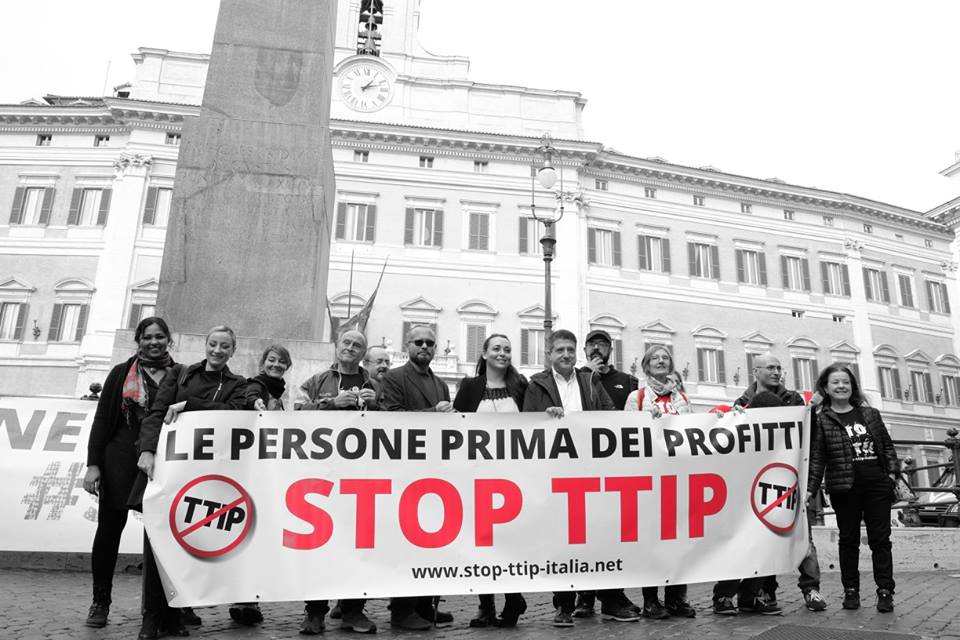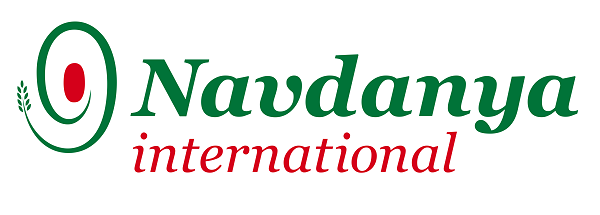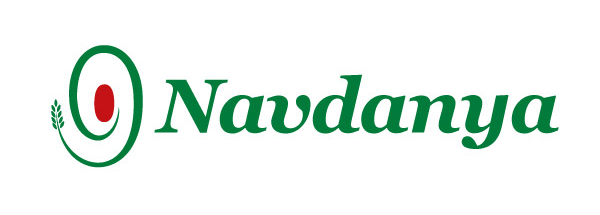CETA: HERE’S HOW U.S. MULTINATIONAL CORPORATIONS WOULD OBTAIN THE SAME PRIVILEGES AS IN THE TTIP. THE CASE OF GLYPHOSATE AND ITALIAN PASTA
Written ‘CETA’ – Spelled ‘TTIP’
According to the latest report from the Transnational Institute (Tni), the free-trade agreement between the European Union and Canada would open the door to 42000 American and affiliated Canadian firms, including agrifood giants such as Coca Cola, McDonald, Cargill and ConAgra foods. In fact, 81% of American firms operating in Europe meet the requirements to be deemed “Canadian investors”. The presence of the Isds/Ics provision within the Ceta agreement would therefore allow a large number of American firms to sue national governments in private arbitration courts to demand for compensation, in case of regulations and national laws getting in the way of their interests. The dossier stresses the fact that it’s the multinationals themselves, by now used to using such an instrument aggressively, who have reached the point of inhibiting legislators who, out of fear of being sued, are often prompted not to introduce legislations that might not sit well with powerful multinationals. As such, Ceta would privilege investors by limiting democratically elected governments’ ability to act in their citizens’ interest. The Stop Ttip Italy Campaign organized a protest in front of the Italian Parliament in Rome specifically in order to denounce Ceta.
The protest saw organic, local Italian pasta prepared on the spot and handed over to participants and passers-by alike in a symbolic act to raise awareness around one of the major risks posed by CETA’s entry into force, that is, the dumping of low-quality primary products on European economies, and the rippling effects on workers in the primary sector. As Monica Di Sisto, the Stop TTIP Italy Campaign spokesperson, explained: “Just like the TTIP, the CETA agreement is potentially dangerous for small and medium production in Italy; it will be even harder for small and medium-scale primary producers, who already suffer from lower prices for wheat and grains, because of the massive amount of low-quality cheap imports from Canada”. In fact, Canada is among the major suppliers of wheat for Italian pasta manufacturing facilities. A matter of price? Of course, but also a matter of quality, considering the fact that Canadian wheat seems to be particularly rich in protein. However, the alleged superiority of Canadian wheat conceals deceitful desiccation practices, whereby this is not obtained naturally, due to adverse climatic conditions in Canada, but through the use of chemical products that could damage human health as well as the environment. “Canada already represents an important partner for the EU” Monica Di Sisto continued “and many Italian pasta manufacturing firms are already buying Canadian wheat as it is rich in protein; what they haven’t told us, though, is that this high protein percentage is obtained by spraying the wheat with tons of chemicals, particularly Monsanto’s RoundUp, whose active ingredient is Glyphosate which is currently forbidden within the European Union. The point being, to sum up, that while it is illegal to use Glyphosate in public parks or even in our own back yard in Italy, we nonetheless ingest it through our pasta every day”.
In terms of the Italian economy, CETA will have a huge impact on the primary sector, more specifically on wheat production and consequently on pasta and all its derivative products. As a recent dossier published by the Stop TTIP Campaign states, Italy is Europe’s largest producer of durum wheat for pasta production with 4.8 million tonnes, about 60% of the market request, cultivated on an area of about 1.3 million hectares. However, 4.8 million tons of wheat and 2.3 million tons of durum wheat are imported from abroad. Of these, over half (a total of 1.2 million tons) are imported from Canada. In fact Coldiretti, the main Italian farmer organization, has declared that almost one out of five packs of pasta contains Canadian wheat. As a consequence, many Italian pasta producers have abandoned the market due to falling wheat prices, despite the quality of their wheat being higher than that of imported wheat flooding the market. The main issue in this context is the fact that wheat has been considered a normal commodity, whose price was to be regulated by the market. However, if CETA were to be approved, 97% of our tariff barriers would be eroded, leading to a process of high deregulation. This agreement would allow North American corporations to take over small and medium Italian enterprises due to the massive imports of foreign wheat and grain it would pave the way for. Consequently, the process of global market deregulation and limitations in storage capacity will exacerbate the war between agroindustry and primary sector producers. According to the Canadian Centre for Policy Alternatives, at least 45% of Canadian food production is exported. National agricultural exports have tripled from $ 11 billion to $ 33 billion between 1988 and 2007. In the same period, according to an analysis by the National Farmers Union, the net income from farms has fallen by more than half, while these companies’ debt has doubled. What’s more, over the last 40 years, Canada has lost 45% of its farms thanks to the free trade agreement signed with the US and Mexico (NAFTA). The total number of farms in Canada plummeted from 366,128 in 1970 to 204,730 in 2011. This data shows the threats posed, especially for our small and medium farmers, by this new ‘wave’ of liberalization.
Our safety barriers do not simply concern the economic sphere, but were put in place to safeguard against environmental and health threats as well. The main issue with Canadian wheat regards the high quantity of glyphosate it contains. Not only are North American products treated with glyphosate, which has been banned in Italy as a suspected carcinogenic (the use of glyphosate has been banned in the pre-harvest crops for the sole purpose of optimizing the harvest in the school grounds, parks public, flowerbeds and traffic islands), but also the legally allowed level of toxins in such products is much higher compared to the level that Italian law deems acceptable. Glyphosate, which has been sold by Monsanto as RoundUp, the “miracle herbicide”, has been classified by the World Health Organization (WHO) as “probably carcinogenic” to the human body. Nevertheless, Canada continues spraying glyphosate in order to increase protein levels in wheat sheaf, but in the meanwhile still leaving high levels of chemical residues. This issue is related to quality levels dictated by the market and industrial sector, due to the fact that it is the latter who define the levels of protein and toxins allowed in our wheat products. Hence the necessity to mix Italian wheat, which has less toxin and more protein, with Canadian grain that has high levels of both, in order to balance the quantities.
The pasta issue, however, is only one of many outstanding matters. CETA’s chapter on regulatory co-operation, in fact, would give Canadian agrarian exporters – fifth in the world for GMO production – new instruments to open the European market to their products. However, in most cases these are low-quality products, often cheap imitations of Italian specialties. “Every year, Canadian consumers” the report reads, “buy 3,6 billion dollars in products that seem to them Italian in all respects, despite the fact they are not; the real Italian products in their shopping bags are hardly worth 950 million, yet only a couple dozen pages of the 1.600-page CETA document (attachments included) concern Geographical Indications specifically”.
Besides, questions around CETA also concern labour and public services matters. These are issues on which generic agreements have been reached, but that still have not satisfied civil society organizations. One of the matters analysed in the study concerns national governments’ ability to withdraw from agreements on public services without disputes arising with multinational corporations. Public services, under this point of view, tend to be considered potential markets for commercialization: “the agreement’s aim”, the report states, “is that of reversing the current paradigm which, at least in principle, still values the public interest more highly than the private one; with regulatory co-operation and the investments court, the attempt is to overturn such a perspective even from a strictly jurisdictional point of view”. Furthermore, CETA’s chapter on labour is void of binding provisions capable of enforcing respect for ILO (International Labour Organization) regulations and of any guarantee of keeping multinationals’ privileges and special rights in check. The report stresses that, out of the ILO’s eight fundamental conventions, Canada has not ratified n. 98 on the right to collective bargaining, or n. 138 on the minimum age to be employed as a worker. As Canada, twelve European states have not yet ratified the health and safety-on-the-workplace convention. One of the effects of this situation could be that of enabling those entrepreneurs who intend to move their investments where there are less stringent regulations on labour.

Protest in Rome in front of Parliament, with Ruchi Shroff (Navdanya International) and Monica Di Sisto (Fair Watch). Photo by Manlio Masucci
According to Monica Di Sisto, CETA represents a treaty whose potential effects on our social and economic fabric would be devastating: “the advantages Ceta would grant to multinational corporations are the same ones they would obtain through TTIP; for this reason, we need to raise our guard if we want to defend small and medium-scale local producers”. The spokeswoman for the Stop TTIP Italy Campaign concluded “the bad thing is that Ceta seems to be completely excluded from the public debate, as was the case with Ttip in previous years, before unions along with consumer and civil society organizations and common citizens started to get informed and to contrast it. I believe” Di Sisto concluded “it is our responsibility to denounce the fact that Ceta is actually a ‘Trojan horse’ used to raise multinationals’ profits, and that it is our duty to fight against this agreement from the day of its approval by the European Parliament until its eventual ratification by national parliaments”.
Author: Manlio Masucci
Translation and editing: Elisa Mussio (Navdanya International)
With the contribution of Michela Papotti (Navdanya International)
Sources:









Pingback: Video Monsanto Tribunal and People’s Assembly
Pingback: LA STAMPA ITALIANA CENSURA LE NOTIZIE SUL CETA: ECCO LE PROVE – Caposele 5 Stelle
Pingback: La stampa italiana censura le notizie sul CETA: ecco le prove | NUTesla | The Informant
Pingback: ARRIVA L’ENNESIMA CENSURA. ECCO COSA NON AVETE LETTO SUI GIORNALI ITALIANI STAMATTINA – Last-Webs
Pingback: Tutti i quotidiani esteri riportano la notizia dell’approvazione al Parlamento Europeo dell’accordo di libero scambio con il Canada (CETA). Noi non sappiamo manco cos’è!! È la peggio minaccia alla nostra economia ed ai nostri consumi. Hanno protes
Pingback: M5S: “CETA, MINACCIA PER LA NOSTRA ECONOMIA E LA NOSTRA SALUTE, MA LA STAMPA NON NE PARLA” – Nessuna Censura
Pingback: TRUMP ANNULLA IL TTIP E LORO APPROVANO IL CETA! VIDEO – Nessuna Censura
Pingback: La stampa italiana censura le notizie sul CETA: ecco le prove | Faro Network
Pingback: Il CETA : l’accordo tra l’Unione Europea e il Canada che farà fallire molte altre imprese italiane. VIDEO |
Pingback: Il CETA: l'accordo tra l'Unione Europea e il Canada che farà fallire molte altre imprese italiane.
Pingback: Approvato il CETA al Parlamento Europeo, ma i nostri media hanno censurato la notizia. Perchè? Come mai noi non sappiamo manco cos’è, mentre in tutta Europa hanno manifestato contro? … Perchè il CETA è la peggio minaccia alla nostra economia ed ai
Pingback: Il CETA: l’accordo commerciale che farà fallire molte altre imprese italiane. Ecco le conseguenze di questo scempio sulla vita degli italiani...! | Zapping